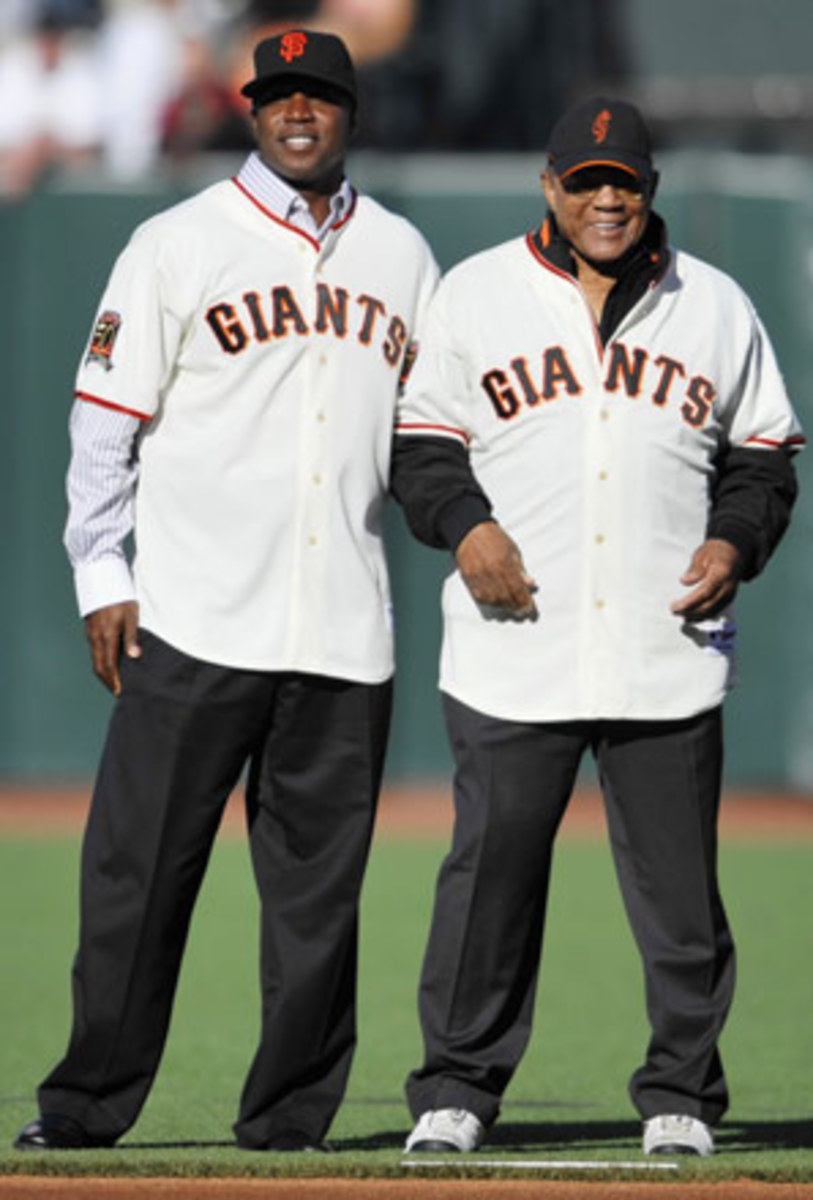After guilty verdict, Bonds' legacy on hold for a long time
What about the statue?
That was one of the first questions asked in San Francisco after Barry Bonds was found guilty of obstruction of justice. What about a statue?
Oh, yeah, and what about the Hall of Fame?
The San Francisco Giants like their statues. Fans meet under Willie Mays' bronzed likeness in front of AT&T Park. Around the corner Juan Marichal kicks his leg high; across the water, Willie McCovey peers off at a home run; up the street Orlando Cepeda greets visitors.
So the people want to know, will a former player whose statistics include the alltime home run record, one guilty verdict and three hung jury counts get a statue?
If they can put up a statue of Bud Selig in Milwaukee, anything's possible. Bonds may get his statue and he may get into the Hall of Fame. But he's not going to get either any time soon.
The Giants official comment on the Bonds situation was that they had no comment. And a statue would definitely be a comment.
The team's current managing partner, Bill Neukom -- a brilliant lawyer who spent years in court battling on behalf of Microsoft -- is letting the legal action run its course. He said he had little interest in the Bonds trial as it unfolded this spring not far from the ballpark, and, after the verdict, he offered no insights into the future for Bonds -- bronzed or flesh -- with the team.
The Giants are happy to just ignore the situation for now. They were lucky to escape with as little accountability as they did for the Steroid Era that ran unchecked directly through their clubhouse.
But there's a general feeling -- both in the legal community and inside the Giants -- that the court case isn't over. "Barry's so stubborn," one front office executive said, "he'll keep fighting this." Expect a Bonds' appeal and perhaps years of continued legal maneuverings.
So no. No statute anytime soon.
And no Hall of Fame anytime soon.
Barring an unlikely ban by baseball, Bonds will be on the ballot for the Class of 2013. He can stay on that ballot through 2022, as long as he gets enough votes to stay eligible. Then his status will be left up to a veteran's committee.
It seems doubtful that Bonds will be voted in in his first year, if ever. This makes some baseball writers apoplectic. They point fingers at people who won't vote for Bonds and call them sanctimonious moralists. They point out that there are drunks and liars and bad guys in the Hall of Fame. That Bonds was already a Hall of Famer before he took steroids. That segregationist Cap Anson, whose crimes were far worse for baseball, is in the Hall of Fame. They rail that they won't stand in judgment.
But baseball voters are asked to stand in judgment with every ballot. Voting, by its nature, is a purely subjective process. The apologists for the Steroid Era overlook that fact that there's a difference between being a drunk or a jerk and systematically and illegally cheating baseball by changing one's physical abilities solely for the purpose of getting more money and more records.
The steroid apologists say there's no way to tell who was using and who wasn't, as though a mountain of evidence should simply be ignored. And if Bonds was really a Hall of Famer before he began using, which he was, doesn't that make using steroids worse than if he was just a mediocre player trying to hang on? Like, say, Marvin Benard, who testified at his trial.
Segregationist Cap Anson, who is treated as a kind of smoking gun by baseball apologists looking for scumbags already in the Hall of Fame, was voted in in 1939 by the veterans committee. That was a pretty small voting pool in an era when some of those casting a ballot overlooked Anson's racial views, considering that Jackie Robinson wouldn't show up for another eight years.
Bonds' fate may be decided as Anson's was, by a veteran's committee.
The veteran's committee is actually separate voting bodies split into the Pre-Integration Era Committee, the Golden Era Committee and the Expansion Era Committee. Within a few years, it will not only be logical but mandatory to establish a Steroid Era (or a more sanitized name such as "High Performance Era") Committee, to deal with the tainted players. Because rank-and-file voters are showing a reluctance to vote for any of them.
Players who wanted to take the short cut to the Hall of Fame are now going to have to be patient. The steroid era will be viewed differently in another 12 years (12 years ago there was mass denial that it was happening at all). Time can heal wounds, and offer perspective. Bonds will just have to wait.
As for a statue, there's no rush there either. And by the time the Giants decide -- if they ever do -- that Bonds is statue-worthy, he may have to wait longer. That longhaired pitcher who arrived in Bonds' final season may have jumped the statue line.






